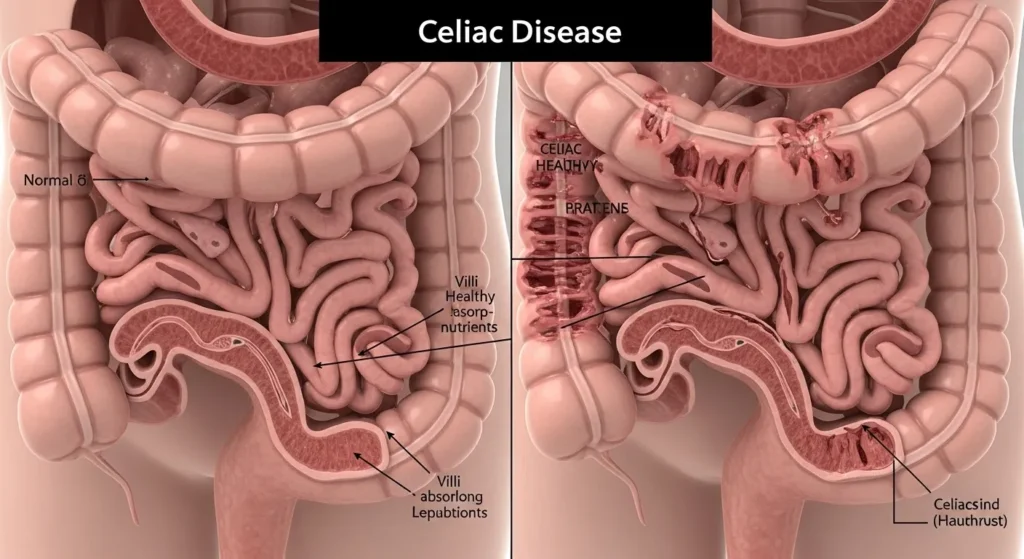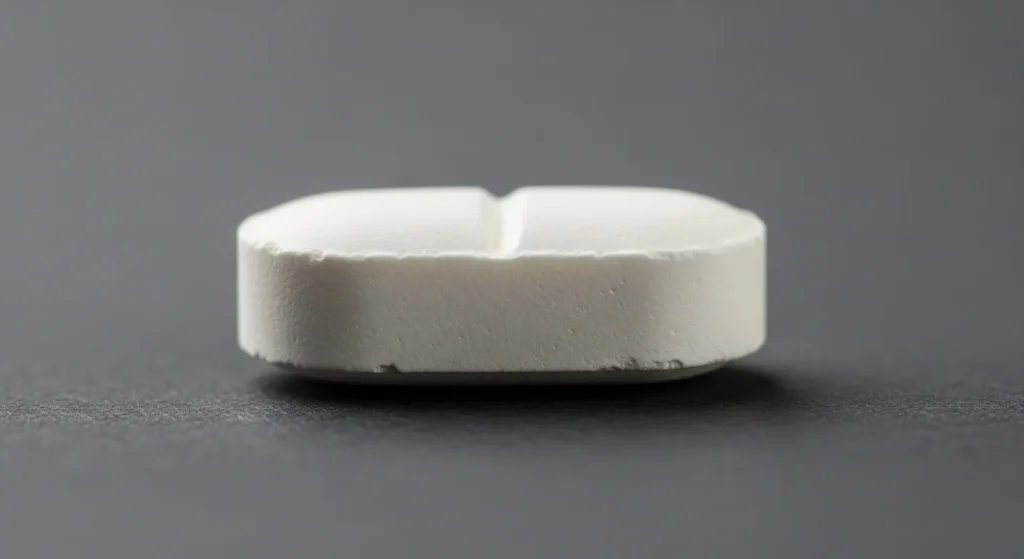Struggling with unexplained hair thinning or patchy bald spots? Celiac and hair loss are often linked, yet many people remain unaware of how gluten sensitivity can impact hair health.
This article explains how celiac disease causes hair loss, how long recovery takes, and what steps you can take to regrow healthy hair. Backed by medical research and expert insights, this guide will help you recognize signs, understand treatments, and regain control of your health with confidence.
What Is Celiac Disease—A Quick Primer

Celiac disease is an autoimmune condition where consuming gluten—a protein found in wheat, barley, and rye—triggers an immune response that damages the small intestine. This damage interferes with nutrient absorption, leading to widespread symptoms.
Common symptoms include:
- Chronic diarrhea or constipation
- Bloating and gas
- Fatigue
- Anemia
- Skin rashes (dermatitis herpetiformis)
- Hair thinning or hair loss
Unfortunately, celiac disease often goes undiagnosed or misdiagnosed for years, which can lead to long-term nutrient deficiencies and systemic effects, including those affecting the hair and scalp.
How Celiac Disease Can Lead to Hair Loss
Hair health depends on proper nutrition, hormonal balance, and a healthy immune system—all of which are disrupted by celiac disease.
Malnutrition & Nutrient Malabsorption
When the intestinal lining is damaged, the body can no longer absorb essential nutrients properly. This leads to deficiencies in:
- Iron – Essential for oxygen delivery to hair follicles
- Zinc – Regulates hair follicle function and repair
- Biotin (Vitamin B7) – Crucial for keratin production
- Vitamin D & B12 – Important for immune regulation and follicular health
Deficiencies in these nutrients can trigger telogen effluvium, a condition that causes diffuse hair shedding.
Autoimmune Overlap: Alopecia Areata & Hashimoto’s
Celiac disease is associated with other autoimmune disorders. One such condition is alopecia areata, which causes the immune system to attack hair follicles, leading to patchy bald spots. Other conditions like Hashimoto’s thyroiditis may further exacerbate hair loss.
Inflammation & Gut Imbalance
Ongoing gut inflammation can lead to “leaky gut”, allowing immune complexes to circulate in the bloodstream. This can trigger systemic inflammation—including in hair follicles—resulting in hair fall.
Types of Hair Loss Seen in Celiac Patients
Different types of hair loss may occur depending on the severity and duration of gluten exposure.
Telogen Effluvium (TE)
- Caused by nutritional deficiencies or physiological stress
- Hair sheds diffusely across the scalp
- Common after illness, crash dieting, or malabsorption conditions like celiac disease
Alopecia Areata
- Autoimmune hair loss is characterized by round, bald patches
- More frequent in individuals with other autoimmune conditions, including celiac disease
- May fluctuate or progress over time
Evidence from Research & Personal Stories
Several studies and anecdotal reports have highlighted the link between celiac disease and hair loss.
- A 2020 study found a significantly higher prevalence of alopecia areata in patients with celiac disease.
- Many individuals report noticeable regrowth within 6–12 months of adopting a strict gluten-free diet.
While individual responses vary, these accounts underscore the potential for recovery when the root cause—gluten—is removed.
How Long Until Hair Comes Back? Recovery Timeline & Factors
Hair regrowth timelines can vary based on several factors, including how long the gut has been damaged and whether nutrient levels are corrected.
Typical Recovery Window
- 3–6 months: Initial signs of reduced shedding
- 6–12 months: Visible regrowth in many cases
- 12–18 months: Full regrowth for most compliant patients
Factors That Influence Regrowth
- Adherence to a strict gluten-free diet
- Correction of nutrient deficiencies (especially iron, zinc, and vitamin D)
- Management of co-existing conditions (thyroid, stress)
Diagnosis & What to Test
If you’re experiencing hair loss along with digestive symptoms or unexplained fatigue, testing for celiac disease is essential.
Celiac Disease Screening
- Blood tests: Anti-tTG IgA and EMA
- Endoscopy with biopsy: The Gold standard for diagnosis
Nutrient Deficiency Tests
- Iron/ferritin
- Vitamin B12
- Vitamin D
- Zinc
Thyroid Panel
- TSH, Free T3, Free T4
- Anti-TPO antibodies (to screen for Hashimoto’s)
Treatment & Lifestyle Strategies for Hair Regrowth
Managing hair loss related to celiac disease involves a holistic approach:
Strict Gluten-Free Diet
- 100% compliance is necessary—even trace gluten can restart damage
- Read labels carefully; cross-contamination is common in restaurants and packaged foods
Nutritional Support
- Iron supplements (ferrous bisglycinate for better absorption)
- Zinc (30–50 mg/day, under medical guidance)
- Biotin, Vitamin D3, and B-complex
Scalp and Autoimmune Care
- Minoxidil: Over-the-counter topical for regrowth
- Topical corticosteroids: For alopecia areata under dermatologist supervision
- JAK inhibitors: For severe autoimmune hair loss (consult specialist)

Checklist: What to Do After Diagnosis
- Begin a strict gluten-free diet immediately
- Schedule tests for iron, zinc, vitamin D, and thyroid
- Consult a dermatologist and gastroenterologist
- Track hair regrowth monthly with photos
- Avoid harsh styling or chemical treatments
FAQs
Can non-celiac gluten sensitivity cause hair loss?
Yes, it can in some cases, especially due to inflammation or gut-related malabsorption.
Will my hair grow back if I go gluten-free?
In many cases, yes—especially if the damage is addressed early and nutritional deficiencies are corrected.
What’s the difference between telogen effluvium and alopecia areata?
Telogen effluvium causes diffuse shedding; alopecia areata results in patchy, round bald spots due to immune attacks.
Should I test for thyroid issues too?
Yes. Hashimoto’s thyroiditis is commonly linked to both celiac disease and hair loss.
Can I treat this without medications?
Some cases improve with diet and supplements alone. Others may require topical treatments or medications prescribed by specialists.
Final Thoughts
Celiac disease can cause hair loss through nutrient malabsorption, immune responses, and inflammation. The good news? Most cases are reversible with a gluten-free diet, proper supplementation, and professional support. Understanding the cause of your hair loss is the first step toward real, long-term recovery.
Worried about celiac-related hair loss?
Book a consultation with Dr. Rana Irfan in Islamabad today. Get a complete evaluation, personalized treatment plan, and the expert care you need for healthier, fuller hair.
